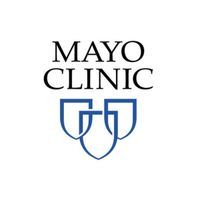
Eculizumab Provides Long-Term Effective Management of NMOSD

Between PREVENT baseline and end, mean EDSS and Hauser Ambulation Index scores improved with eculizumab (Soliris; Alexion) monotherapy and deteriorated with placebo alone.
Post-hoc findings from the phase 3 PREVENT trial (NCT01892345) and its open-label extension (OLE; NCT02003144) highlighted
Eculizumab monotherapy duration was between 14.1 and 271.3 weeks among 33 patients (PREVENT + OLE, n = 15; PREVENT only, n = 6; OLE only, n = 12) with AQP4-IgG + NMOSD, correlating to a median duration of 2.8 years per patient. At 192 weeks of treatment, 96.2% of patients were free from adjudicated relapses (Kaplan–Meier analysis, 0.962 [95% CI, 0.757-0.994]). In comparison, 95% of patients in PREVENT who received the therapy had no disability worsening. Furthermore, the adjudicated annualized relapse rate (ARR) for the eculizumab monotherapy group in the open-label extension was 0.012 (95% CI, 0.313-1.250) compared to 0.625 (95% CI, 0.313-1.250) for the PREVENT placebo alone group (n = 13).
The study was led by Dean M. Wingerchuk, MD, director of the Mayo Clinic Division of Multiple Sclerosis and Autoimmune Neurology, and the authors included Sean Pittock, MD, director, Center for Multiple Sclerosis and Autoimmune Neurology, Mayo Clinic, among others. Eculizumab, a humanized monoclonal antibody targeting terminal complement protein C5, became the first FDA-approved treatment for patients with AQP4-IgG+ NMOSD in June 2019, with data from PREVENT serving as the basis for approval.2 Here, Pittock and colleagues reported data from both PREVENT and the OLE, with July 31, 2019, as the cutoff.
During the OLE, 19.3% (17 of 88) of patients who used concomitant IST at baseline stopped using IST. Reasons for discontinuation were not recorded. Notably, over a stretch of 44.3 weeks (range, 0.3-186.3) with subsequent eculizumab monotherapy use, no adjudicated relapses were reported among these patients.1
READ MORE:
At the conclusion of PREVENT, 4.8% (1 of 21) of those on eculizumab who hadn’t received IST experienced Expanded Disability Status Scale (EDSS) score worsening, compared to 38.5% (5 of 13) of those on placebo. Similarly, 4.8% (1 of 21) and 30.8% (4 of 13) of patients, respectively, experienced Hauser Ambulation Index (HAI) score worsening by PREVENT end. Treatment with eculizumab monotherapy showed a lower rate of serious infections in both PREVENT and the OLE (2.3 events/100 person-years [PY]) than with placebo alone (7.8 events/100 PY). Additionally, none of these patients reported meningococcal infections or deaths through June 1, 2020.
Between PREVENT baseline and end, mean EDSS (–0.36 [standard deviation (SD), 0.79) and HAI scores (–0.4 [SD, 1.20] improved with eculizumab monotherapy, whereas those on placebo experienced worsening in both assessments (EDSS, 0.42 [SD, 1.04]; HAI, 0.6 [SD, 1.50]). Additional improvements were seen on modified Rankin Scale (–0.4 [SD, 0.92]), EuroQol visual analog scale (EQ VAS; 5.9 [SD, 22.47]) and 5-dimension 3-level index (EQ-5D-3L; 0.07 [SD, 0.190]) scores with eculizumab monotherapy vs placebo.
Original data from PREVENT, a double-blind, time-to-event trial, was published in the New England Journal of Medicine in May 2019. A total of 143 adults were randomly assigned 2:1 to either intravenous eculizumab (at a dose of 900 mg weekly for the first 4 weeks starting on day 1, followed by 1200 mg every 2 weeks starting at week 4) or matched placebo. The trial was stopped after 23 of the 24 prespecified adjudicated relapses, given the uncertainty in estimating when the final event would occur.3
Results showed adjudicated relapses occurring in just 3% (3 of 96) of the eculizumab-treated group compared to 43% (20 of 47) in the placebo group (HR, 0.06 [95% CI, 0.02-0.20]; P <.001). The data also showed an adjudicated ARR of 0.02 in the eculizumab group and 0.35 in the placebo group (rate ratio, 0.04 [95% CI, 0.01-0.15]; P <.001).
Pittock recently sat down with NeurologyLive to discuss some of the greatest strides within the NMOSD space, including the discovery of AQP4 antibody, which has played a crucial role in distinguishing the disease from other demyelinating or autoimmune disorders. Watch his commentary below, as he provides thoughts on approved therapies, the data that led to their approvals, and the most notable advancements in recent years.
REFERENCES
1. Pittock SJ, Fujihara K, Palace J, et al. Eculizumab monotherapy for NMOSD: data from PREVENT and its open-label extension. Mult Scler J. Published online September 9, 2021. doi:10.1177/13524585211038291
2. Alexion receives FDA approval of Soliris® (eculizumab) for the treatment of adults with neuromyelitis optica spectrum disorder (NMOSD) who are anti-aquaporin-4 (AQP4) antibody positive. News release. Alexion Pharmaceuticals. June 27, 2019. Accessed September 23, 2021. https://news.alexion.com/press-release/product-news/alexion-receives-fda-approval-soliris-eculizumab-treatment-adults-neuromy .
3. Pittock SJ, Berthele A, Fujihara K, et al. Eculizumab in aquaporin-4-positive neuromyelitis optica spectrum disorder. N Engl J Med. 2019;381:614-625. doi:10.1056/NEJMoa1900866
Newsletter
Keep your finger on the pulse of neurology—subscribe to NeurologyLive for expert interviews, new data, and breakthrough treatment updates.










